How did you first become interested in the world of coffee?
I fell in love with coffee in the early 2000s at a neighborhood café called Torrefazione. They did nicely steamed milk poured into a Rosetta and served in hand painted Italian ceramics. Lovely! Then when Stumptown opened up a few years later, I discovered that coffee could be sweet and delicious all on its own. In college, I would ship coffee beans from the west coast over to Michigan and to make a daily French press. A few years after that, in 2008, I decided to try my hand at selling coffee equipment online.
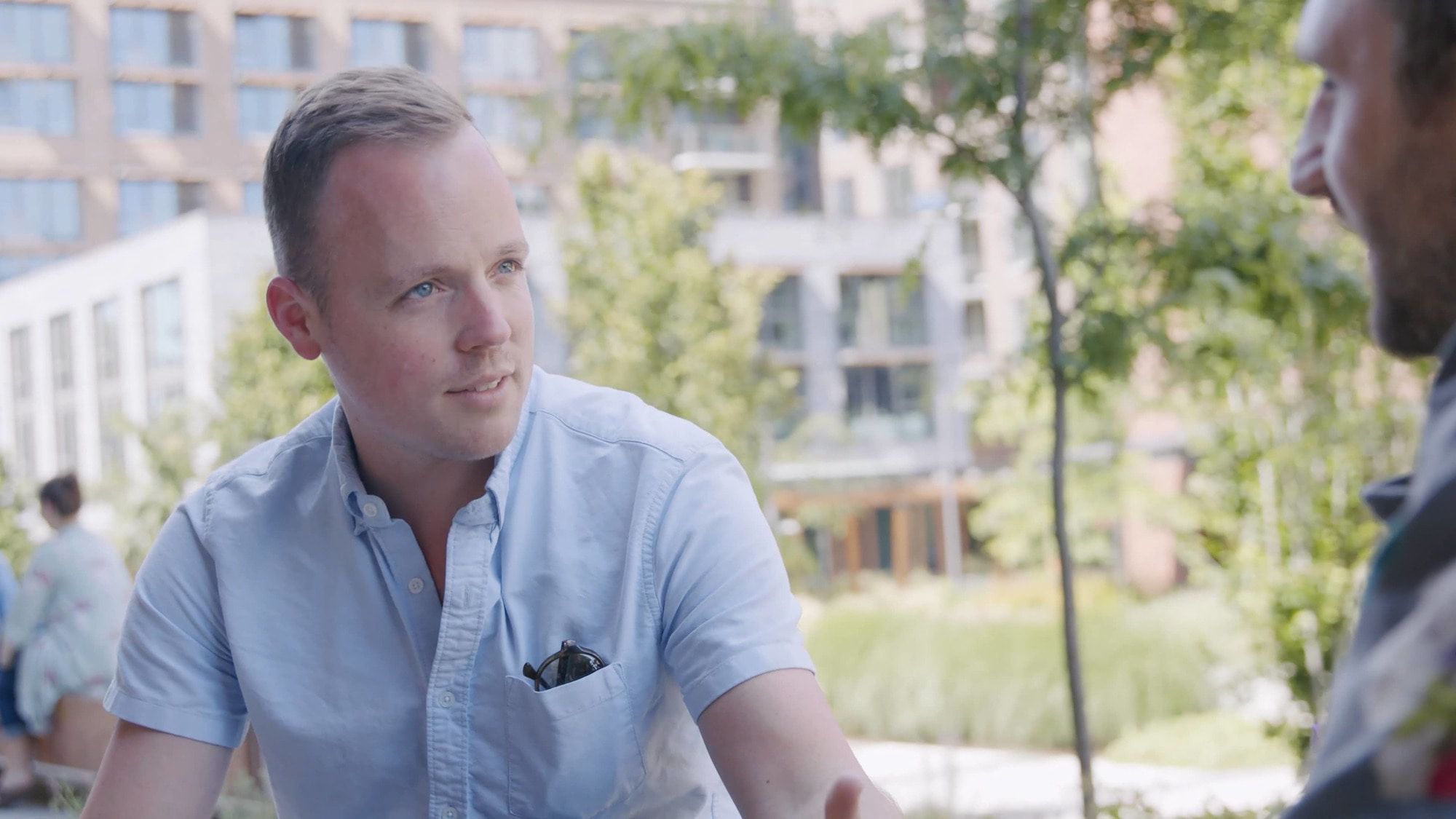 Mark connecting with people through his love of coffee
Mark connecting with people through his love of coffee
What’s the inspiration behind Ratio?
I started Clive Coffee in 2008 to offer coffee beans and coffee equipment. I was wildly off in my forecasts – I had assumed I’d sell 80% coffee beans and maybe 20% coffee equipment. Pleasantly, coffee equipment was in high demand as people started examining their Starbucks budget. Clive ended up carving out a niche in really high quality Italian espresso machines. I saw the opportunity to create a line of beautiful machines specifically for the American market (where we have slightly different preferences than European coffee drinkers). This was named LUCCA after that beautiful little town on the way to the coast in Tuscany.
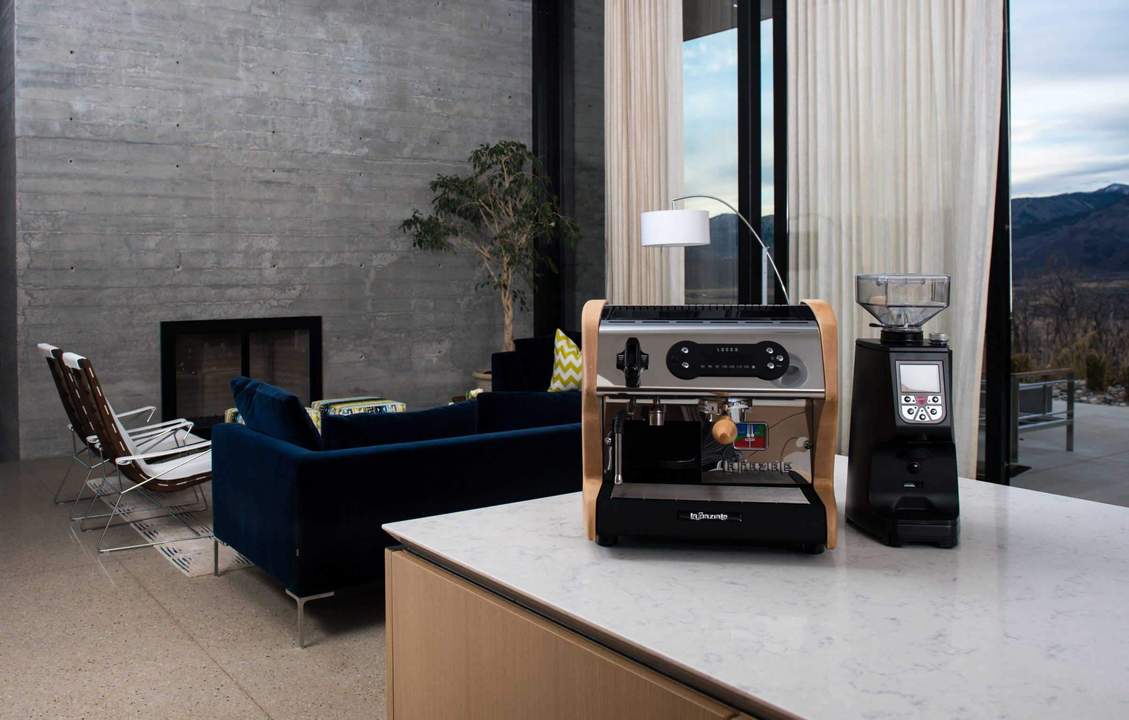 The Lucca machineBut in the drip coffee category, there was nothing even close to the Italian espresso machine in terms of aesthetics, quality materials, and serviceability. You can easily swap a heating element in a 15 year old espresso machine, but a drip coffee maker typically gets thrown out when there’s any issue with it.
The Lucca machineBut in the drip coffee category, there was nothing even close to the Italian espresso machine in terms of aesthetics, quality materials, and serviceability. You can easily swap a heating element in a 15 year old espresso machine, but a drip coffee maker typically gets thrown out when there’s any issue with it.
So Ratio was born out of a desire to have a coffee maker in my own kitchen that was like an espresso machine in terms of hardware but like a manual pour over in terms of coffee taste.
This is not your first time founding a company – in fact, you currently serve as CEO and Founder for two companies at the same time! How do you balance it all?
It’s a constant challenge, for sure! I no longer work day to day at Clive, so my daily focus is on Ratio (with some side projects as well – I ended up buying Able with some other partners from a longtime coffee friend back in 2018).
I try to stay focused on a few really critical projects that are moving the company forward. There is a ton of pressure to be good at six dozen things as a company, and I just don’t think it’s realistic. You won’t see Ratio opening up a gin bar or getting into toasters!
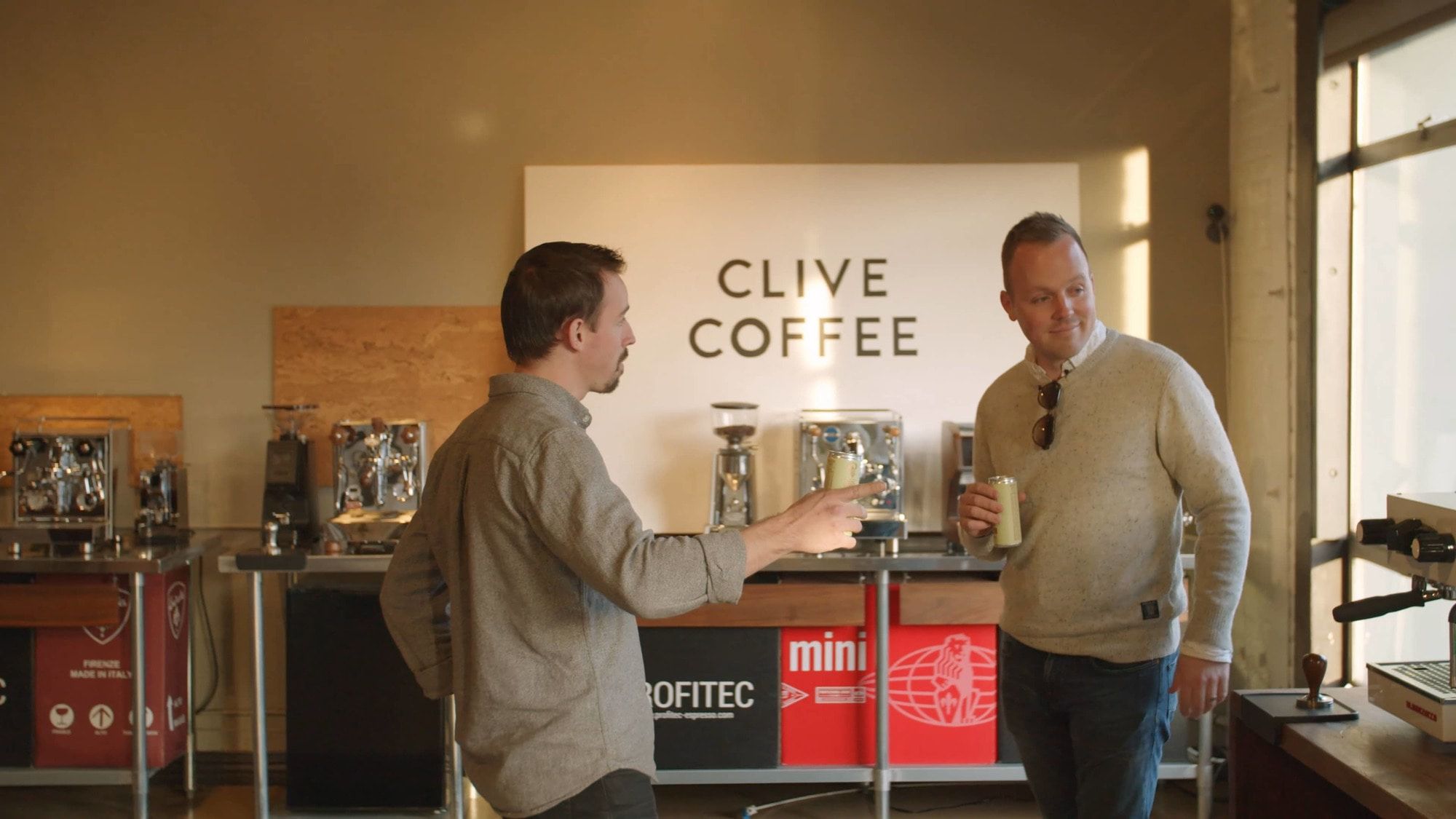 Mark at Clive Cofee
Mark at Clive Cofee
How do you handle risk and competition?
For risk management, we try to do a fair bit of testing out a concept before plowing headlong into it. Your plans better have a lot of flexibility baked into them, as COVID has taught us all this year.
As a management team, we try to make sure that new ventures and projects are something we can unwind if we need to, and certainly weigh the upside versus the potential downside. If a new initiative fails, does it take down the entire company? Then we’re a hard pass. On the other hand, markets reward those that take risks, so it’s a balance to seek.
For competition, I am really focused on delivering on the brand promise. Will the Ratio customer forgive us if we don’t have an exceptional YouTube channel yet? What if they want a timer to turn on their Ratio coffee maker, but we’re not ready to release that feature yet because water and coffee get stale overnight and we need to engineer around this reality?
We won’t do something if we can’t do it well, so we remain very focused on delivering on the brand promise of great quality, good materials, and long-term support (each Ratio has a 5-year warranty!).
We respect our competitors and try to make sure that we offer something unique to our customers.
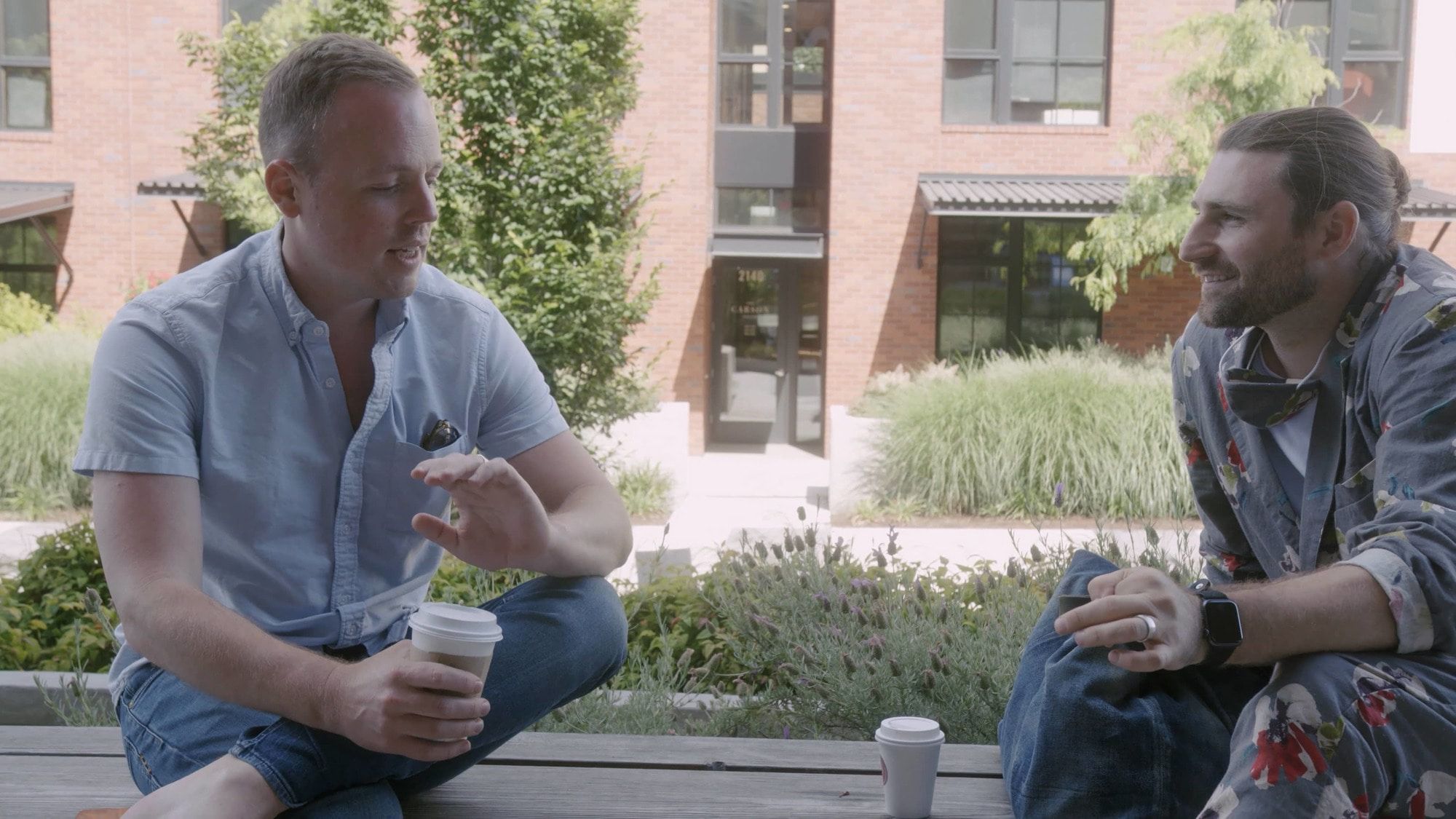 Mark talking about his Ratio vision
Mark talking about his Ratio vision
What’s been the #1 (or two) top challenges you’ve faced while launching your company?
Supply chain management is extremely challenging. Making a prototype is one thing, but making that design at scale, with consistency, and then selling in multiple markets…that’s hard!
The other challenge has been finding investors that are patient through the challenges of growing a hardware company. Fortunately, manufacturing appliances and coffee are two things that people can pretty easily understand, so we’ve been able to find amazing investors to partner with us along the way.
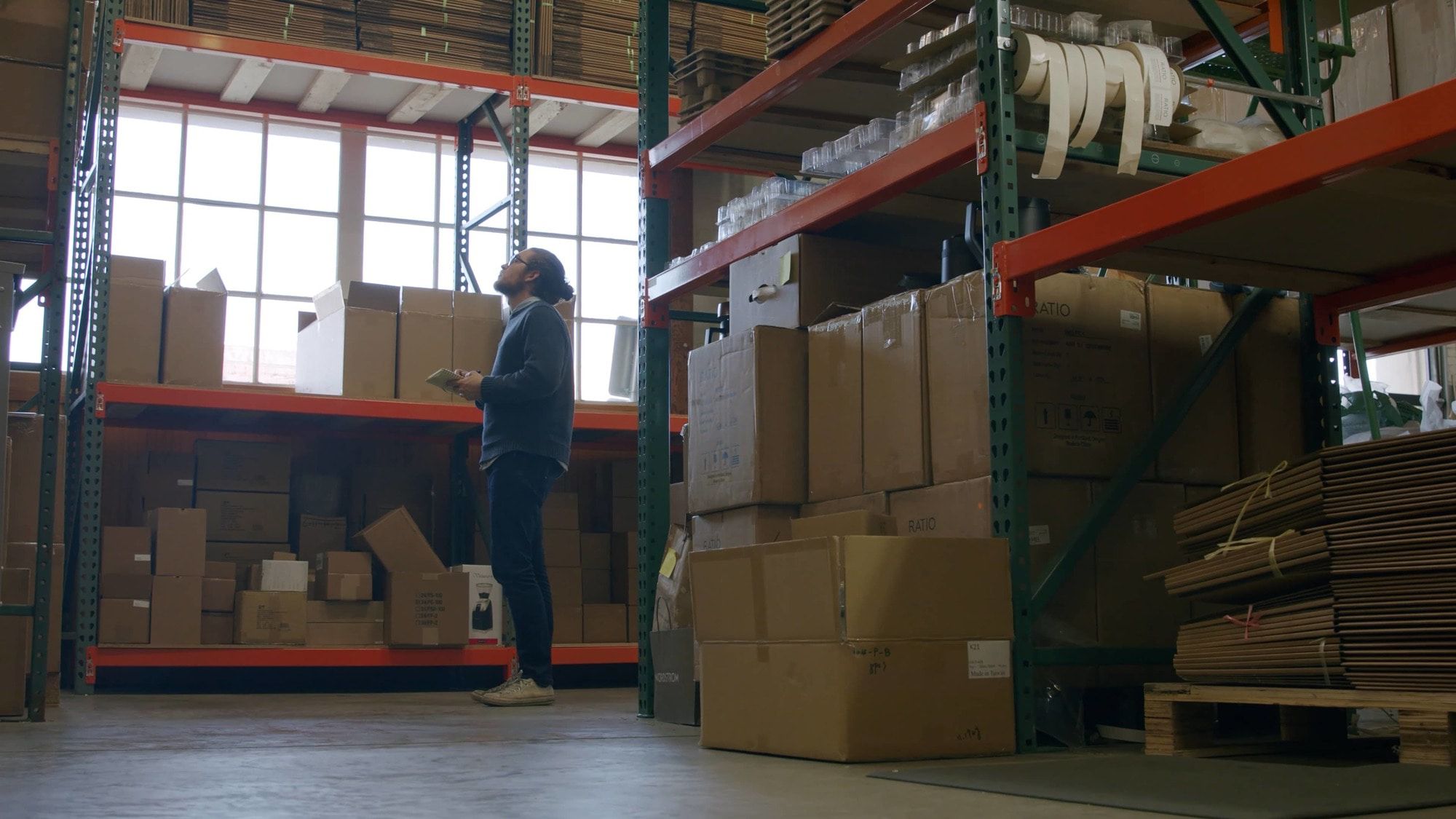 Checking supplies at the warehouse
Checking supplies at the warehouse
What’s your design process like? What part do you most enjoy?
Coming from an ecommerce background, I have a lot of empathy for the end consumer and what it’s like to shop for coffee equipment and then put it to use in your own kitchen. I’ve heard thousands of little bits of feedback on espresso machines, grinders, coffee makers, ceramic cups…so I guess being a merchant and not just a “business owner” means I think a lot about the overall experience for Ratio owners, and this flows into our design process.
We start with a set of problems that we know people have with a product category (like coffee makers) and then work up a plan for how to bring a “Ratio perspective” to it. We do some interviews with our customers and friends to make sure that our approach brings some enthusiasm, then we start to work on prototyping and further refinement of the idea.
I enjoy most the reaction when people get to actually use the product.
It makes me happy to see people start to enjoy their coffee routine, as opposed to it just being a necessary step to get caffeine in the system.
How does designing your own products influence your leadership?
Wow, this is an interesting question I haven’t thought about before! One influence would be in thinking about long-term investments. I’m intrigued by businesses that are around for a long time and that have a fairly consistent product offering. That Weber charcoal grill in my backyard has seen some iterative improvements over the years but it’s the same basic idea as the metal buoy that someone cut in half and made into a charcoal grill many moons ago! So in terms of our team, I’m also looking for a long-term rather than short-term relationship, and we are attempting to build a culture that values honesty, transparency, and mutual trust.
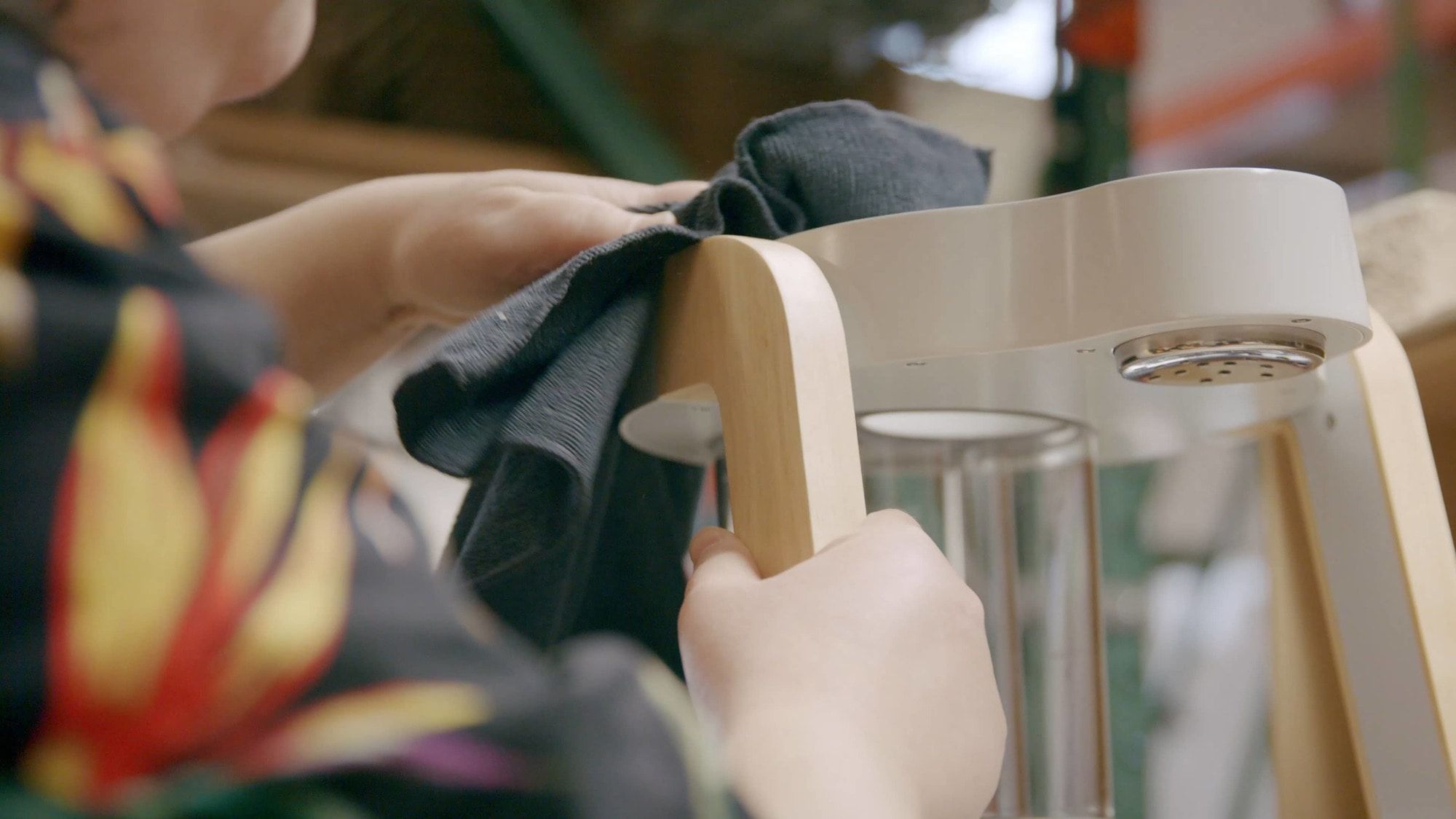 Working on the Ratio design
Working on the Ratio design
Have you learned anything new or surprising about yourself through this process?
I never thought I’d be in coffee equipment for this long! I love it and don’t see myself exiting this industry ever. There are so many ways to get involved. Maybe after Ratio sells I’ll start a fund to invest in the next generation of coffee entrepreneurs.
What’s your team culture like?
We are a small team of 11 people, and we have surprisingly low turnover for our industry. Some of our employees started at entry level hourly employees and now have management positions (and even a small slice of equity!). We all like to work hard, enjoy the variety of music that’s played all day (from Bowie to Art Tatum), and enjoy a few beers at the end of a long day. I would say we have a friendly but not overly casual atmosphere.
Portland is a city known for its coffee culture. How has the city influenced Ratio as a company?
We’ve built up relationships with a variety of Portland coffee innovators, from the roasting and café business but also in media and coffee research (Connie from Roast has been an advisor of mine since 2013). For its size, Portland has generated a lot of innovation in coffee. With COVID shut-downs, the café scene is much more restrained than it was, but I know that that infectious enthusiasm and risk-taking will resurface as things start slowly but inevitably return to something closer to normal. I, for one, miss bringing my laptop to a café and having an afternoon coffee and work session that transforms into an early aperitif with friends.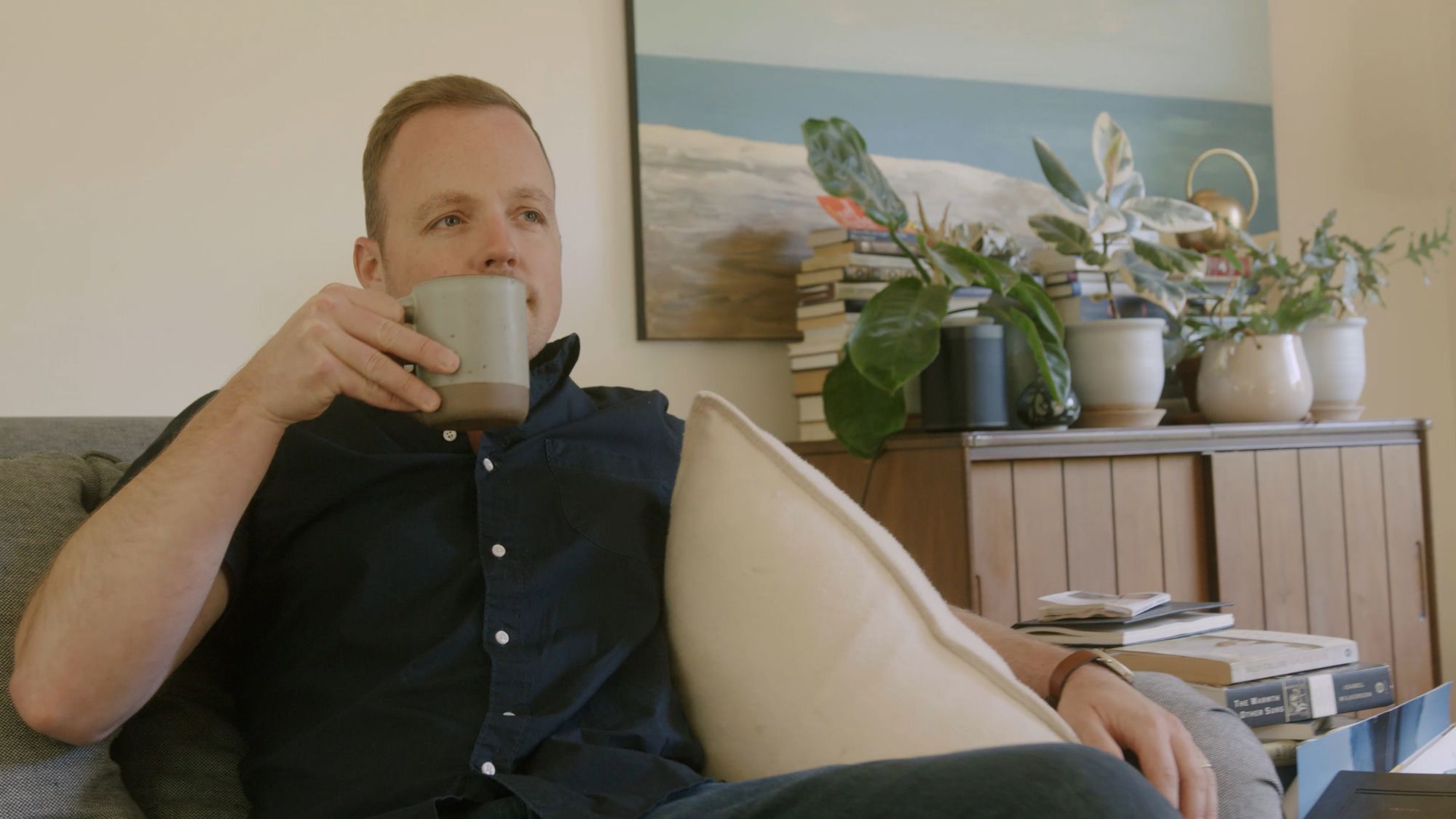 Mark enjoying coffee in his home
Mark enjoying coffee in his home
What is your superpower?
Oh wow. I don’t think I have a superpower. I just love coffee and good design and have found a way to connect people and capital to make that into a thing that can be my day job!
What’s your kryptonite?
I’m extremely stubborn, believe it or not, and if I don’t want to do something I just generally find a way to not have to do it. Ask my wife. I have some entrepreneur friends who are much better at doing the same thing every single day and sort of grinding it out. I have to have variety and newness and a bit of dark comedy in my life or I get bored.
Do you have any unusual routines or habits?
I take a weirdly high quantity of evening Epsom salt baths with a few essential oils added. Always with the paper or a book and sometimes some wine. I’m also very fussy about aligning the music to the time of day and making sure the lighting is appropriate. Opera or classical in the morning, electronic during the day, and jazz in the evening. All my light switches in my house have dimmer switches. Absolutely ridiculous.
Do you have any other hobbies/things you like to do in your spare time?
Weren't we just talking about Epsom salt baths? On top of the baths, I like morning bike rides with friends, walking through a new city, playing par 3 golf with my brothers, skiing with my kids, and hikes. I also read the WSJ pretty much front to back, every day, print edition.
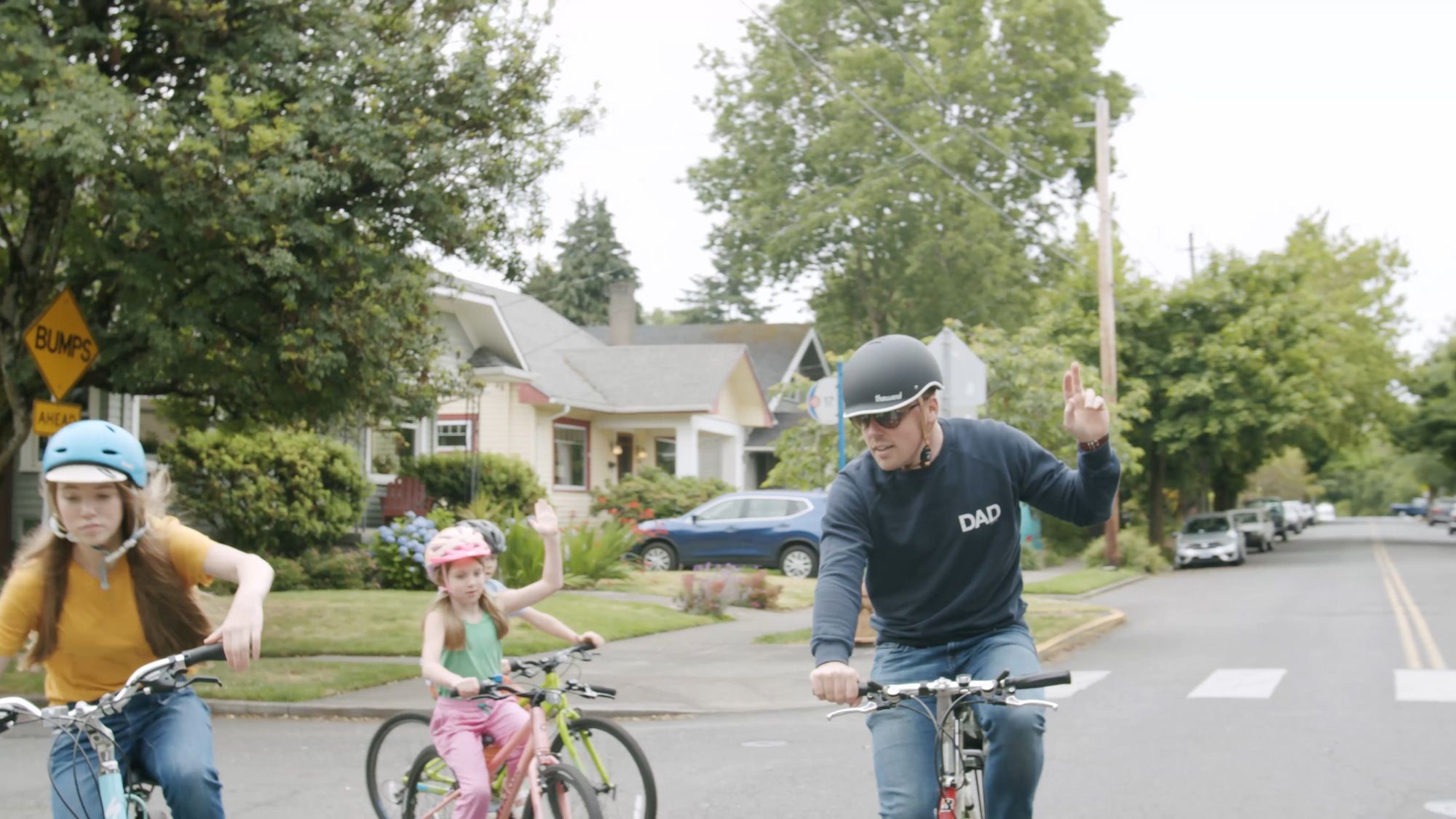 Mark biking with his kids
Mark biking with his kids
Are there any apps or gadgets that you can’t live without?
I use the Freedom app to turn off the internet on my devices for a set period of time, and have recently discovered how helpful the Peloton app is for a daily stretching routine. My Apple AirPods are the most embarrassing piece of tech that I cannot live without.
What’s the best piece of advice you’ve received?
“Anyone can sell a dollar for $.90.” Meaning, if your business doesn’t have a path to profitability, you haven’t proven that you actually deserve to be in business.







 Oops! We couldn’t find any results...
Oops! We couldn’t find any results...





